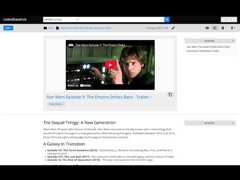- Notifications
You must be signed in to change notification settings - Fork2
AtomGraph/Web-Algebra
Folders and files
| Name | Name | Last commit message | Last commit date | |
|---|---|---|---|---|
Repository files navigation
A composable RDF operations system that translates natural language instructions into JSON-formatted domain-specific language operations for loading, querying, and writing RDF Linked Data.
This system implements generic operations for RDF Linked Data and SPARQL management, as well as someLinkedDataHub-specific operations. Operations can be consumed in two ways:
- Executable JSON format: Operations are composed into JSON structures and executed by the provided execution engine
- Model Context Protocol (MCP): Operations are exposed as tools for AI agents to use interactively
Instead of agents executing semantic workflows step-by-step through individual MCP tool calls, Web-Algebra enables agents to compile entire workflows into optimized JSON "bytecode" that executes atomically - enabling complex multi-operation compositions.
See WebAlgebra in action - translating natural language into RDF operations.
The system is built around theOperation abstract base class that provides:
- Registry System: Auto-discovery of operations from
src/web_algebra/operations/ - JSON DSL: Operations use
@opkey withargsfor parameters, supporting nested operation calls - RDFLib Type System: Uses
URIRef,Literal,Graph, andResulttypes internally for proper RDF handling - Execution Engine: Both standalone execution and MCP server integration
- Context System: ForEach operations set row context for inner operations to access via
Value - URI Resolution: Proper semantic URI construction with
ResolveURIoperation
- System Prompt: Complete operation definitions and JSON format specification
- Formal Semantics: Complete type system and operation catalog
- Operation Interface: Base class and JSON interpreter
- Operation Implementations: Directory containing all available operations
- JSON Examples: Sample operation compositions
The operations cover read-write Linked Data, SPARQL queries, URI manipulation, and LinkedDataHub-specific resource creation. Non-exhaustive list:
- Linked Data
GETPATCHPOSTPUT
- SPARQL
CONSTRUCTDESCRIBESELECTSubstitute
- URI & String Operations
ResolveURIEncodeForURIConcatReplaceStrURI
- Control Flow & Variables
ValueVariableForEach
- LinkedDataHub-specific
ldh-CreateContainerldh-CreateItemldh-Listldh-AddGenericServiceldh-AddResultSetChartldh-AddSelectldh-AddViewldh-AddObjectBlockldh-AddXHTMLBlockldh-RemoveBlock
- Install uv
uv venvuv sync
uv run python src/web_algebra/main.py
Then enter instruction, for example:
Select random 10 UK cities from DBpedia
Currently requires OpenAI API access.OPENAI_API_KEY env value has to be set.
uv run python src/web_algebra/main.py --from-json ./examples/united-kingdom-cities.json
SeeJSON examples.
WithLinkedDataHub
- Run LinkedDataHub v5
- Execute
src/web_algebra/main.py, it expects the path to your LDH's owner certificate and its password as arguments. For example:
uv run python src/web_algebra/main.py --from-json ./examples/united-kingdom-cities.json \ --cert_pem_path ../LinkedDataHub/ssl/owner/cert.pem \ --cert_password**********Here and throughout this guide, the client certificate/password arguments are only required for authentication with LinkedDataHub. You don't need them if you're not using LinkedDataHub with Web Algebra.
uv run python -m web_algebra
uv run uvicorn web_algebra.server:app --reload
or with LinkedDataHub certificate credentials (change the path and password to yours):
CERT_PEM_PATH="/Users/Martynas.Jusevicius/WebRoot/LinkedDataHub/ssl/owner/cert.pem" CERT_PASSWORD="********" uv run uvicorn web_algebra.server:app --reload
MCP Inspector config
You can the inspector like this:
npx @modelcontextprotocol/inspector
and then open on the URL printed in its console output, for example:
http://localhost:6274/?MCP_PROXY_AUTH_TOKEN=b31e4b3d852b5a2445f45032c484e54e319bf16359585858cf88fe9a90816744TheMCP_PROXY_AUTH_TOKEN is required. If the link does not appear, you need to copy the session token from the console and paste it into inspector's Proxy Session Token config.
Web Algebra's settings:
- Transport Type
- Streamable HTTP
- URL
- http://127.0.0.1:8000/mcp
Claude Desktop tool config
Add Web Algebra entry (that uses stdio transport) to themcpServer configuration yourclaude_desktop_config.json file:
{"mcpServers": {"Web Algebra": {"command":"uv","args": ["--directory","/Users/Martynas.Jusevicius/WebRoot/Web-Algebra/src","run","--with","mcp[cli]","--with","rdflib","--with","openai","python","-m","web_algebra" ],"env": {"CERT_PEM_PATH":"/Users/Martynas.Jusevicius/WebRoot/LinkedDataHub/ssl/owner/cert.pem","CERT_PASSWORD":"********" } } }}Leave the command as it is. Thoseuv run --with arguments are important, otherwise 3rd party packages cannot be found.
On my Mac, the path touv has to be absolute, otherwise it doesn't work in Claude Desktop 🤷♂️.
CERT_PEM_PATH andCERT_PASSWORD env values are optional.
About
Suite of generic Linked Data/SPARQL as well as LinkedDataHub-specific MCP tools
Topics
Resources
Uh oh!
There was an error while loading.Please reload this page.
Stars
Watchers
Forks
Uh oh!
There was an error while loading.Please reload this page.
